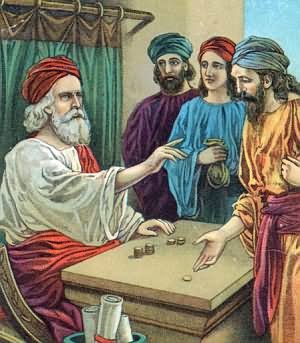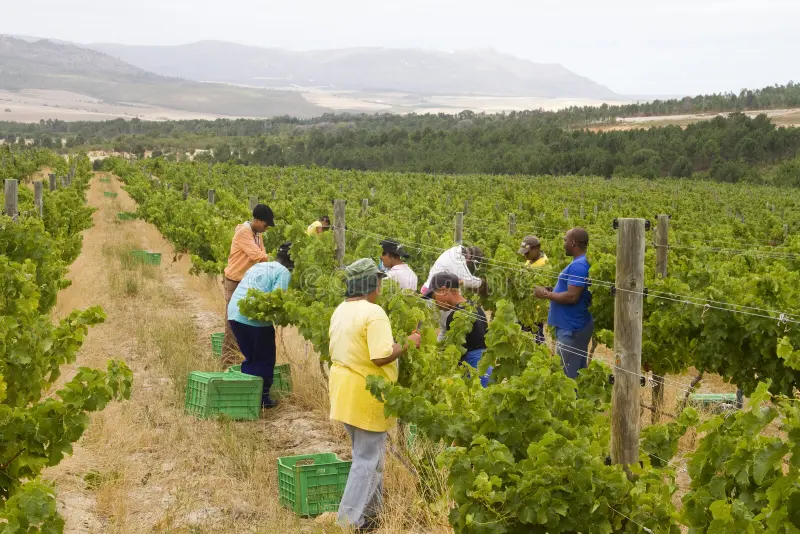This parable can be found in Matthew 13:24-43
The pictures in this parable would be clear and familiar to a Palestinian audience. Tares were one of the curses against which a farmer had to labor. They were a weed called bearded darnel (Lolium Temulentum). In their early stages the tares so closely resembled the wheat that it was impossible to distinguish the one from the other. When both were beginning to grow it was easy to distinguish them; but by that time their roots were so intertwined that the tares could not be weeded out without tearing the wheat out with them. Both, therefore, must be left to grow together until the time of harvest.”
In the end, both had to be separated by hand, because the grain of the bearded darnel is slightly poisonous. It causes dizziness and sickness and is narcotic in its effects, and even a small amount has a bitter and unpleasant taste.
It may well be said that in its lessons this is one of the most practical parables Jesus ever told. As explained by Jesus, the Sower of good seeds is himself, tares are the wicked persons who are planted by the devil. At the end of ages, Jesus will send His angels to separate the good from the evil.
Whilst all this is nice to hear how does it apply in today’s scenario. One way of looking at this is that Satan cannot uproot the plants (true Christians), so the easiest way to thwart this plan is to plant counterfeit in their midst. In this parable, the good seed is not the Word of God, it represents people converted through trusting the Word. The field is not human hearts but the field is the world. Christ is sowing true believers in various places that they might bear fruit (John 12:23–26). But wherever Christ sows a true Christian, Satan comes and sows a counterfeit.
We must beware of Satan’s counterfeits. He has his counterfeit
Counterfeit Christians – 2 Cor. 11:26 Paul writing to the Corinthians faced similar problems of false brethren. We must be aware of the counterfeit and this we can do only with the wisdom that comes from the Holy Spirit. We need to seek His guidance on a daily basis to keep us free from the counterfeit.
Counterfeit Gospel – Gal. 1:6–9 Paul speaks of abandoning God’s gift of grace and altering the gospel. The counterfeit prevalent today is
- “We’re all basically good people. We make mistakes – nobody’s perfect – but we’re good people at heart.”
- “Believe in yourself! You might have some struggles and issues, but you can be resilient. The Savior will answer all your prayers.”
- The claims here are being a Christian is basically about “being You being true to yourself,” “ You following your heart,” and “You living authentically.”
- One popular belief states, “A person can find their way to God through a number of different spiritual experiences” in other words proclaiming that “Jesus is a way, and not the way”.
- The prosperity gospel’s distorted view of Jesus is that He guarantees his followers a happy, healthy life and no troubles.
- This distortion claims that “faith and” something else is sufficient to save me: Faith and my good works; faith and enough self-loathing; faith and a right understanding of God is enough to save me is another counterfeit gospel.
Counterfeit Righteousness The question to answer is the Righteousness from God or from Human prevalent in me. The litmus test is Righteousness from God is not earned, its given through an exchange. Righteousness from God is not bought, its paid for. Righteousness from God is not temporary but eternal. If one hears anything other than this is, it counterfeit.
Counterfeit church: 2:9 Whenever a Church emphasis is on Works as a means to Salvation, it should ring an alarm bell. The true church would not point doubts or cast suspicion on other churches. Any authoritative dealing by a Church should be looked at with suspicion. A church which does not consider the Bible as a complete authoritative scripture is another warning sign of a counterfeit church.
What does this scripture teach me
(i) It teaches us that there is always a hostile power in the world, seeking and waiting to destroy the good seed. My experience is that both kinds of influence act upon my live, the influence which helps the seed of the word to flourish and to grow, and the influence which seeks to destroy the good seed before it can produce fruit at all. The lesson is that we must be forever on our guard.
(ii) It teaches me that sometimes it is to distinguish between those who are in the Kingdom and those who are not. A man may appear to be good and may in fact be bad; and a man may appear to be bad and may yet be good. I’m at times too quick to classify people and label them good or bad without knowing all the facts.
(iii) It teaches me not to be so quick with my judgments. If the reapers had had their way, they would have tried to tear out the darnel and they would have torn out the wheat as well. Judgment had to wait until the harvest came. A man in the end will be judged, not by any single act or stage in his life, but by his whole life. Judgment cannot come until the end. A man may make a great mistake, and then redeem himself and, by the grace of God, atone for it by making the rest of life a lovely thing. A man may live an honourable life and then in the end wreck it all by a sudden collapse into sin. No one who sees only part of a thing can judge the whole; and no one who knows only part of a man’s life can judge the whole man.
(iv) It teaches me that judgment does come in the end. Judgment is not hasty, but judgment comes. It may be that, humanly speaking, in this life the sinner may seem to escape the consequences, but there is a life to come. Humanly speaking, goodness never seems to enter into its reward, but there is a new world to redress the balance of the old.
(v) It teaches me that the only person with the right to judge is God. It is God alone who can discern the good and the bad; it is God alone who sees all of a man and all of his life. It is God alone who can judge.
In conclusion then, this parable is two things–it is a warning not to judge people at all, and it is a warning that in the end there comes the judgment of God.



